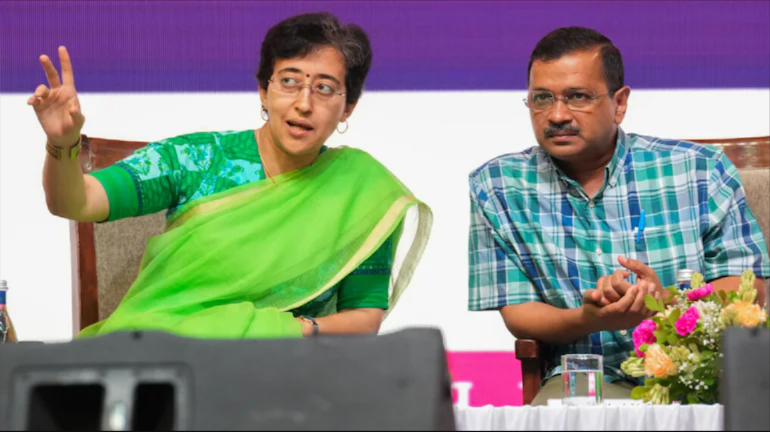
The changing political landscape of Delhi—A calculated gamble or the beginning of the end for Kejriwal?
Dr. Avi Verma
Publisher, IndoUS Tribune
The resignation of Delhi’s Chief Minister, Arvind Kejriwal, marks a critical juncture for both the Aam Aadmi Party (AAP) and the political future of the national capital. Kejriwal, a long-time advocate of anti-corruption and welfare reforms, has stepped down just days after being granted bail in the infamous liquor policy case. His departure from office, along with the legal entanglements of his top brass ministers—many of whom are either jailed or out on bail for alleged corruption—has raised serious questions about the stability and credibility of his administration.
For Kejriwal, this resignation appears to be a calculated gamble. By stepping down and declaring that he will only return if the people of Delhi “give him a certificate of honesty,” Kejriwal is attempting to shift the narrative from one of corruption to one of vindication. This is not just about clearing his name in court but also seeking moral validation from the public, whom he has long championed through his populist policies.
However, the shadow of corruption cases continues to loom large over his leadership. The arrest of prominent AAP figures, including Manish Sisodia and Sanjay Singh, in connection with various corruption charges, paints a grim picture for the party’s integrity. Both leaders have played crucial roles in shaping AAP’s governance model, particularly in the realms of education and social welfare. Their involvement in alleged wrongdoings has not only damaged the party’s clean image but also put into question the long-term sustainability of its leadership.
Atishi, the newly appointed Chief Minister, has been entrusted with steering Delhi’s governance through these tumultuous times. A close confidante of Kejriwal and a key figure in AAP’s education reforms, Atishi brings both competence and credibility to her role. Yet, her interim leadership comes with immense challenges. She inherits a party beset by legal battles and a city grappling with the fallout of its top leaders being embroiled in corruption scandals.
Atishi’s tenure is a temporary one, aimed at holding the fort until the next state elections. However, her appointment also signals a potential shift in AAP’s internal dynamics. While Kejriwal has been the face of the party, the ongoing legal troubles could necessitate a new leadership direction, either through Atishi or others who are less tainted by controversy.
Despite the challenges, Kejriwal’s move could still pay off. His government’s track record of delivering key welfare programs—ranging from affordable electricity and water to education reform—still resonates strongly with large sections of Delhi’s population. By positioning himself as a victim of political conspiracies orchestrated by the BJP, Kejriwal is attempting to leverage public sympathy to secure a fresh mandate. His call to advance Delhi’s elections from February to November, though unlikely to succeed, reflects his desire to capitalize on this moment of heightened political attention.
However, the BJP’s branding of his resignation as a “publicity stunt” is not without merit. The optics of resigning after spending months in jail and then seeking public validation could backfire if voters perceive it as a strategy to deflect from the serious corruption charges facing him and his ministers. The legal woes of AAP’s top brass could weigh heavily on public opinion, undermining the very sympathy Kejriwal seeks to garner.
In the broader political landscape, this leadership transition will undoubtedly impact AAP’s standing both in Delhi and nationally. AAP’s alliance with the Congress-led INDIA coalition has been another focal point of opposition politics against Prime Minister Narendra Modi’s Bharatiya Janata Party (BJP). Kejriwal’s decision to step aside may weaken AAP’s position within this coalition, especially as opposition parties seek to position themselves as credible alternatives to the ruling BJP.
As Delhi moves toward its next election cycle, the public will have the final say in whether Kejriwal’s gamble pays off. Will the electorate rally behind him as an honest leader wronged by political vendettas, or will the taint of corruption—now spreading across his top leadership—erode the trust they once had in him? Atishi’s role in this interim period will be crucial, not only in keeping the party afloat but also in setting the stage for what could be the most consequential elections in Delhi’s recent history.
For now, AAP and its leadership stand at a crossroads. The party’s future, and indeed that of Delhi’s governance, hinges on how well it can navigate this storm of legal challenges, political uncertainty, and public opinion.